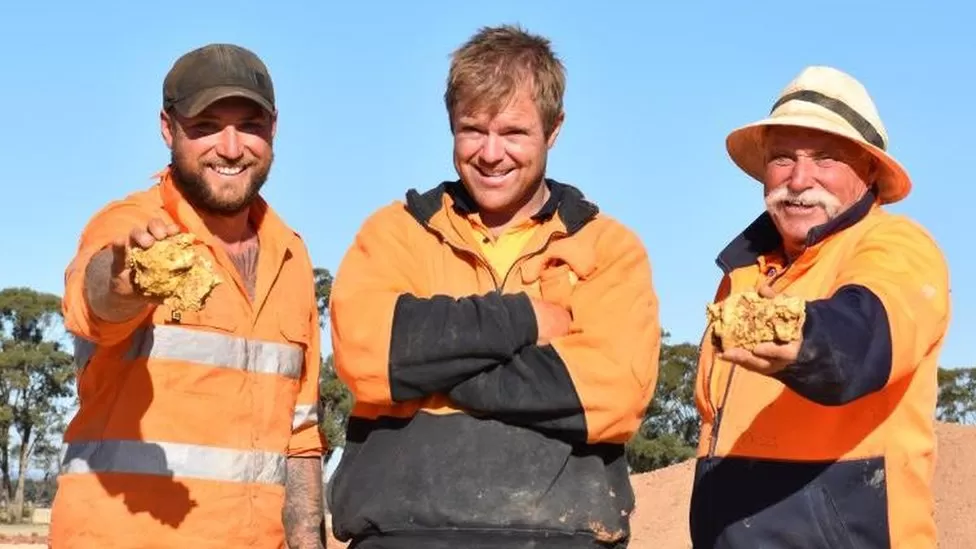Listen to this article:
Let’s face it:
Finding gold by coincidence doesn’t happen every day. It’s a valuable commodity often stored in secured facilities or banks.
But what if you do come across some of the precious metals by chance?
You may wonder:
- Do gold miners pay taxes?
- If you find treasure do you have to pay taxes on it?
- Are you obliged to report it to the authorities?
- If yes, who would you have to declare it to?
We’ll answer the common questions people have when they claim to have unearthed high-valued treasures somewhere in their backyard or while they are traveling.
Without further ado, let’s dig in!
Cesarini v. United States
This is the court case that everyone cites when this topic comes up. Sadly, it had a negative outcome and there doesn’t seem to be any initiative to overturn this ruling.
The case was settled in the late 60s in Northern Ohio and the backstory is an interesting one. A man and his wife bought a used piano.
While this fact isn’t very compelling, what happened next is.
Inside the piano was $4,467 in currency. The money was quite old, and clearly worth more than its face value. They took it to their local bank and deposited it in their joint account.
Here’s where things get interesting.
The couple initially included the found stash as ordinary income on their tax return and paid the amount due.
Months later, they filed an amended return which did not include the $4,467, and they requested a refund of the amount previously paid.
This request was denied and the couple filed a lawsuit against the government, and predictably, they lost.
This sets an exemplary case for all US citizens planning not to declare anything they find that’s high-valued – whether it’s gold, cash, precious stones, and so forth.
In the most legal sense, you are obliged to include assets that possess economic value on your tax return. Otherwise, there are corresponding penalties and consequences.
Recent “Found Gold” Stories
Even though we all know that finding lost treasure is highly unlikely to happen, it’s an exciting topic to daydream about.
Similar to thinking about what you might do if you won the lottery, it’s fun to think about stumbling across a chest filled with jewels.
And, because stories like these keep happening, there will always be people dreaming about the lost gem hidden right around the next corner.
In 2013, a 12-pound gold nugget valued at around $300,000 was found near Ballarat, a town in Australia.
What was most shocking about this discovery, in addition to the size and value of the chunk, is that the place is popular with prospectors.
This piece was found in an area that had been combed over by hundreds of folks before him. It’s a story that gives new meaning to the phrase “right place at the right time”!
Another story is about the two pieces of gold valued at an estimated $250,000 USD found in 2000 by Brent Shannon and Ethan West.

Weighing about 7.5 lbs combined, their discovery was made near the town of Tarnagulla, Australia. Another very lucky occurrence.
It is well-known for having fields filled with precious stones and is a popular spot for amateur treasure hunters.
Not many are as fortunate as this trio!
Finding lost treasure often takes a metal detector, an ancient map, and a whole lot of luck.
And, in 2022, two ships from the War of Spanish Succession (1701 – 1714) were discovered.
It’s thought that they may have gold aboard that could be worth a staggering $17 billion in total. There are also quite a few loose coins on the ocean floor.
The ships were discovered off the coast of Cartagena, Colombia, close to a shipwrecked Spanish galleon.

Of course, this was an undertaking by the Colombian Navy, and not discovered by a casual snorkler. Even dedicated adventurers are unlikely to make such discoveries.
It’s definitely possible to find lost hidden treasures, but it’s probably not a smart idea to rely on this mainly as your income source.
When it comes to funding your retirement, there are many better solutions than searching for lost gems.
Did you know that there are options that provide preferential tax treatment for alternative investments? We’ll take a closer look at those tools a little later.
Declare Found Gold as Ordinary Income
Let’s face it:
No one wants to run afoul of the IRS, so it’s important to declare anything of value as ordinary income.
However, we are not tax advisors, so please consult with a professional before completing any forms.
In some cases, the cost of valuing the found items can be deductible on the return. Depending on how you discovered the bounty, there could be additional expenses that you can write off.
It’s worth investigating these exemptions to avoid paying taxes that you don’t owe.
These situations differ from the norm, and you’ll want to make sure you’re handling everything properly.
Consulting with a financial advisor will ensure that you receive the best possible tax treatment without breaking any laws.
Does the Government Track Gold?
This is a pretty common question.
In fact, we’ve talked about it on Gold & Silver Central too.
So, does the government know if you own gold?
No, the government has no way of knowing if you possess any physical precious metals. However, there are certain reporting requirements that all investors must follow.
For example, if you buy over $10,000 with cash, the transaction will be declared. Cash purchases over a day or two that total $10,000 or more will also need to be disclosed.
That’s not the case if you acquire the same amount using a personal check.
Confusing, isn’t it?
In the above scenario, the dealer will fill out IRS Form 8300 and file the information about the transaction.
Buying certain quantities of this item can also trigger a reporting event. For example, if you purchase 25 1 oz gold Krugerrand coins, the dealer needs to complete IRS Form 1099B.
All in all, the government doesn’t trace precious metals or has any tracking system in place, but there are a number of different cases where your acquisition will need to be declared.
Talking with your financial advisors before obtaining a large chunk of gold and silver can help you avoid any unwanted scrutiny or tax implications.
Now, we’d like to hear from YOU:
- Have you ever found any precious metals?
- Did you have to declare it to your government?
Share your experiences and/or questions in the comments below!



